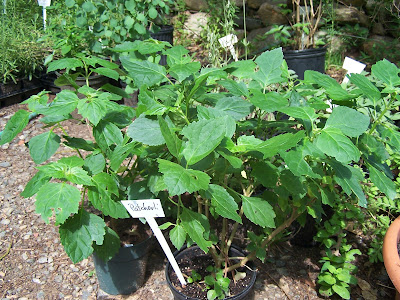PATCHOULI...smells like what?
It often happens that while we're paying for our groceries the check-out person, usually young, exclaims that someone must have sprayed for bugs. The first few times the bug-spray thing happened we put our noses in the air trying to detect the smell of poison. After many “smell of bug spray” incidents, we finally put it all together. It was the patchouli oil we were wearing that the cashier thought was bug spray. Sad.
An old friend once said that patchouli (pa CHEW lee) smelled like "ground-up old hippies". Some say it smells like dirt. Patchouli happens to be our favorite fragrance. It is interesting to note that if an older person is at the cash register there will usually be a question about the good scent we're wearing. The appeal of smells and the memories they invoke definitely vary from generation to generation but bug spray?
In the early 1800s colorful silks and shawls were shipped from the Orient to Europe and between every piece of fabric were layers of patchouli, Pogostemon cablin, a member of the mint family that would repel moths and overcome the musty smell that could occur from the long ocean trip. This scent became an indicator of authentic oriental goods but European merchants began to purchase the dried leaves and use them to scent their own products (early false advertisement). Patchouli oil and incense became popular in the US
Patchouli’s woodsy, earthy fragrance is one of the most important perfumery plants.
The oil is obtained by steam distillation after a controlled fermentation, producing thick, rich-brown oil. Ten years ago the price of one pound of patchouli essential oil from India was $50.00 in the US
Patchouli is easy to grow and loves hot weather, afternoon shade, lots of water and light fertilizer. This herb will not survive outside in cold weather but semi-woody cuttings root easily in fall or winter.
So if you want to have fun with young check-outers, or if you just really like the smell of dirt (we obviously do), tuck some patchouli leaves in your hair or dab a bit of the essential oil on your wrist. Seriously, we think patchouli is grounding (there’s that dirt connection again) and natural…kinda’ like ground-up old hippies, and we’re not trying to cover up anything…anymore.



